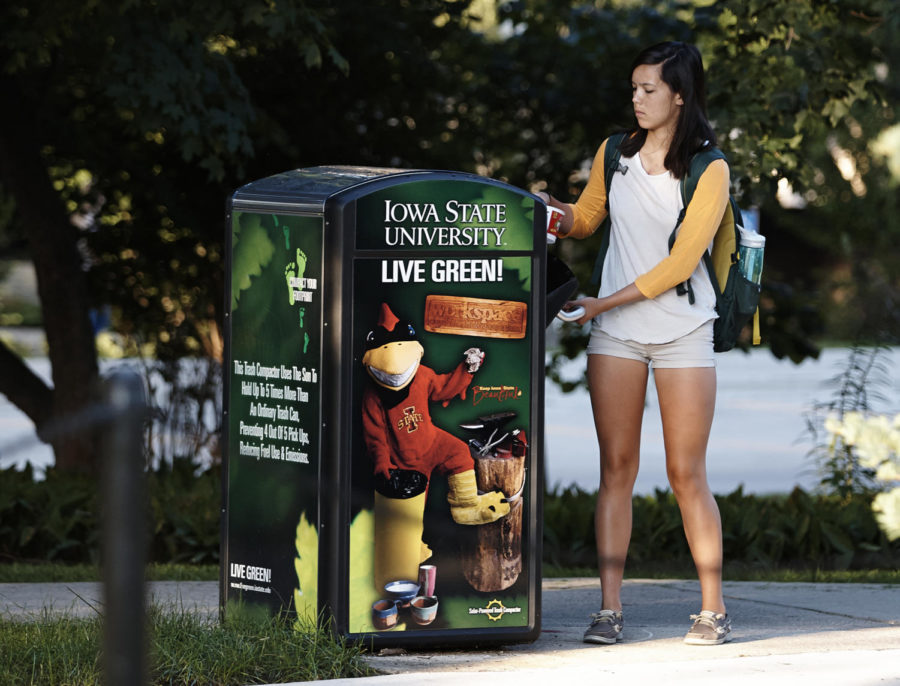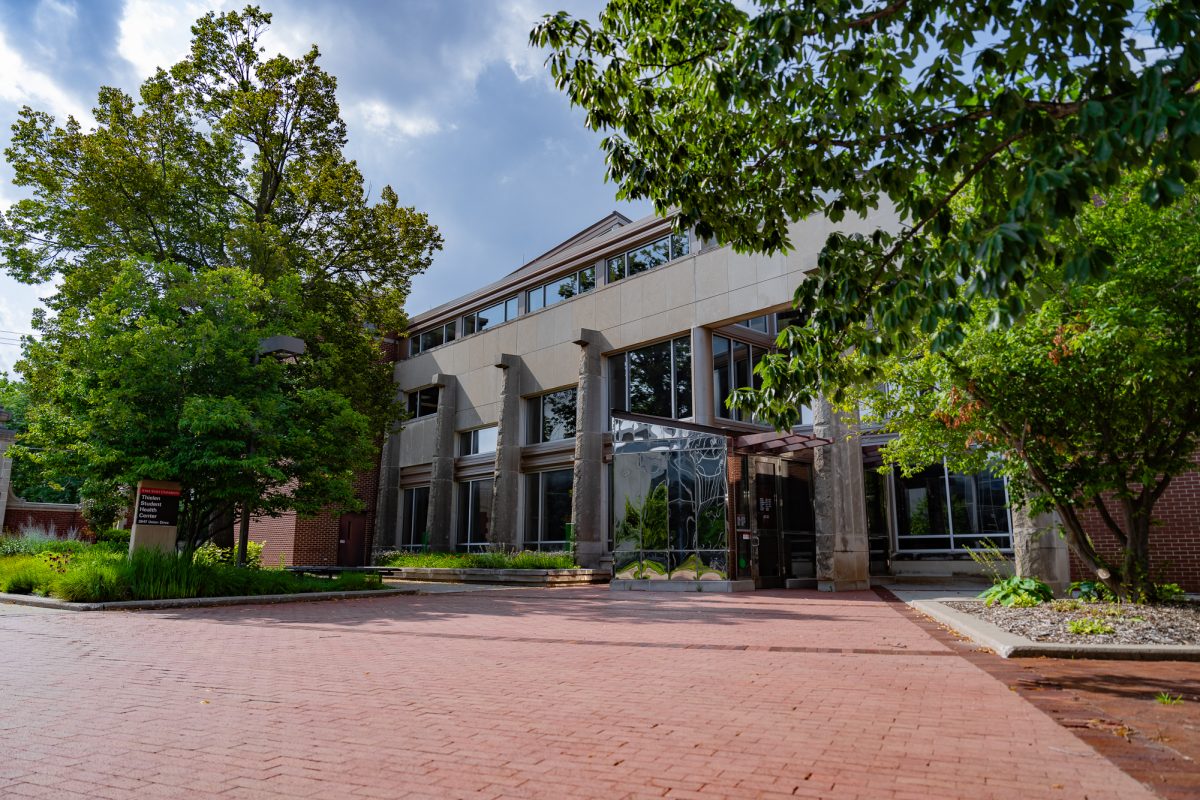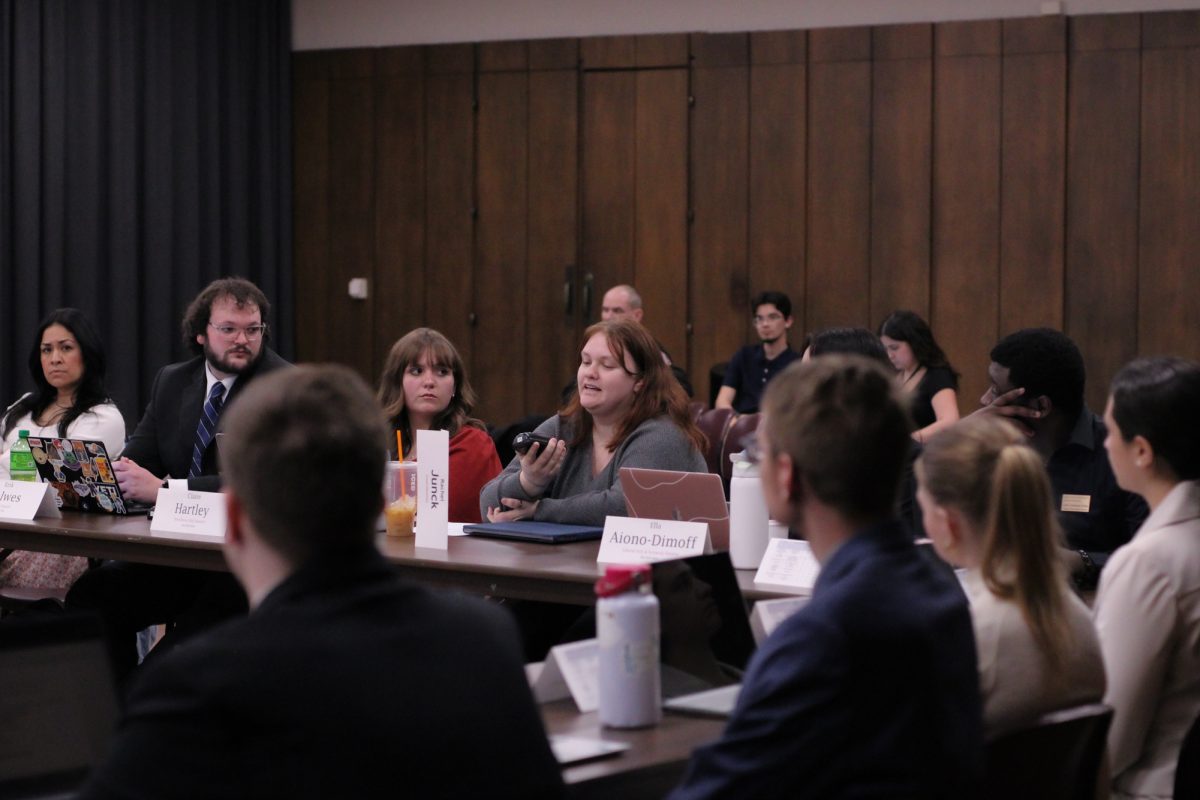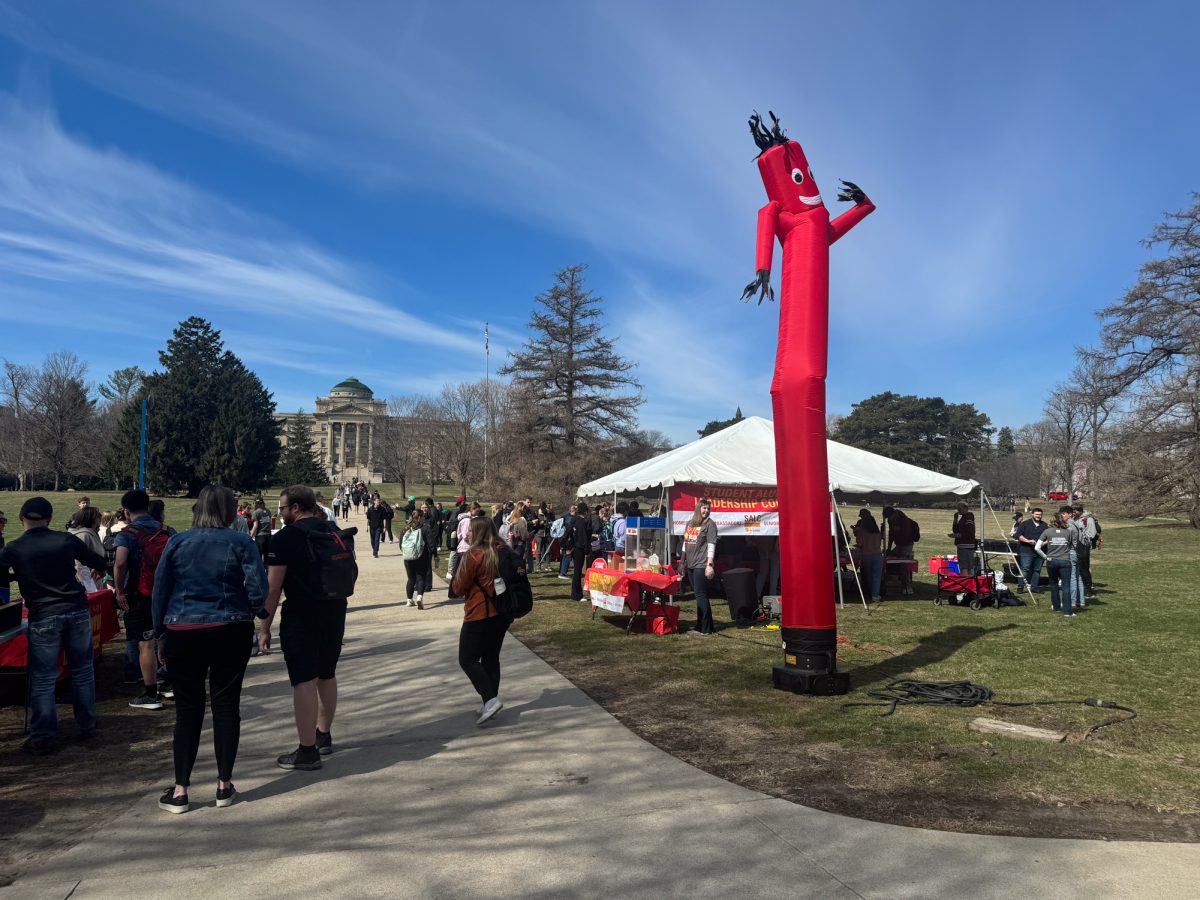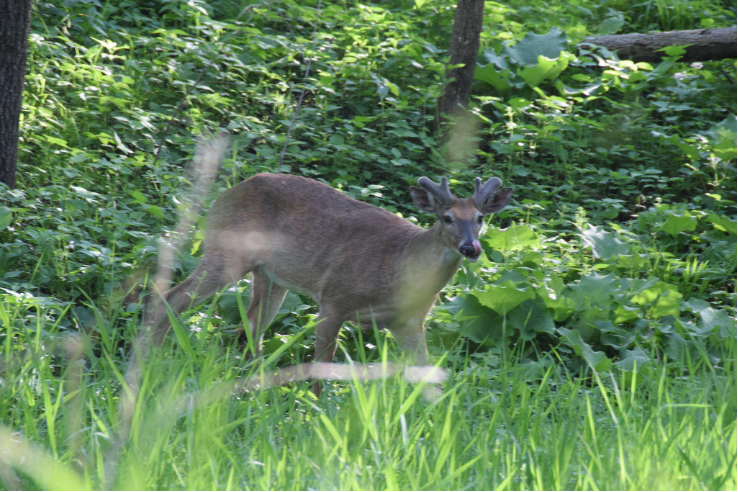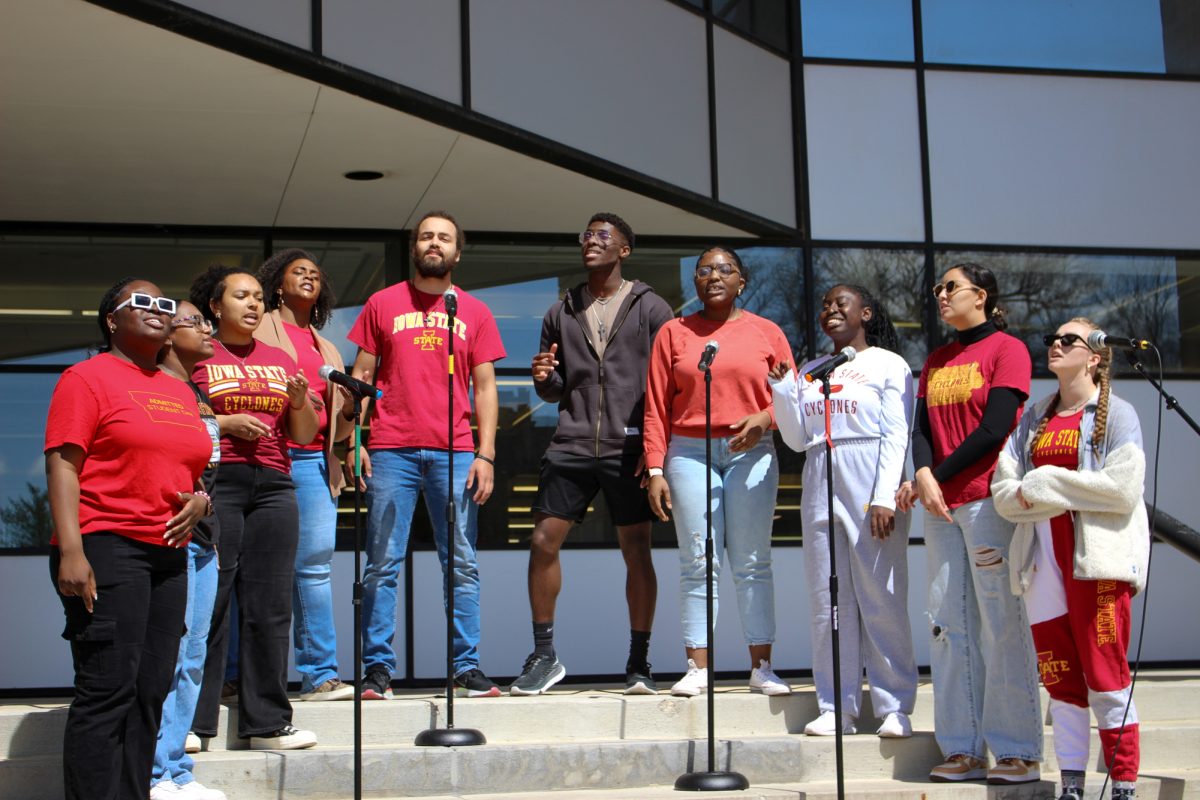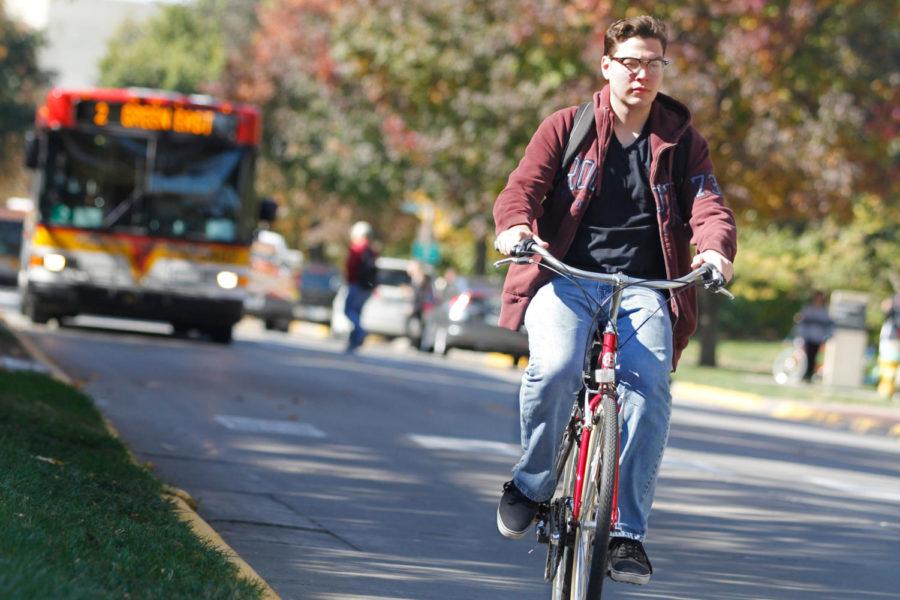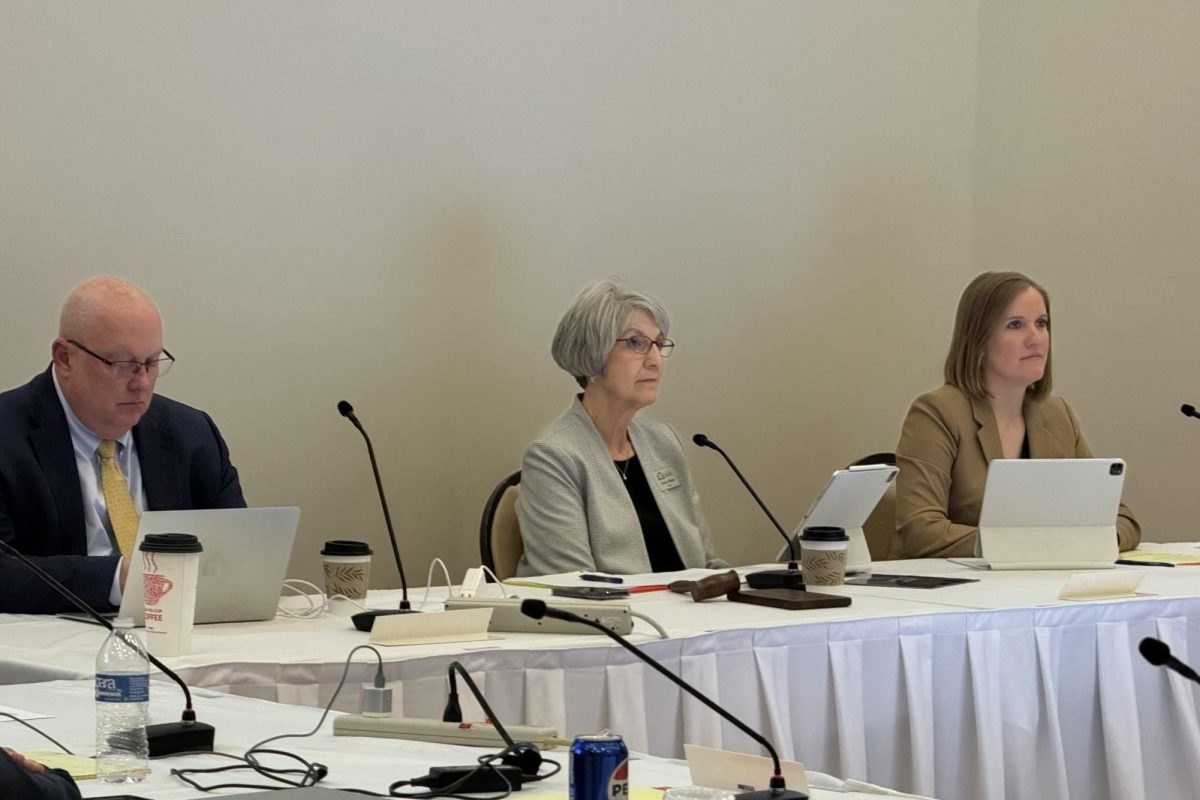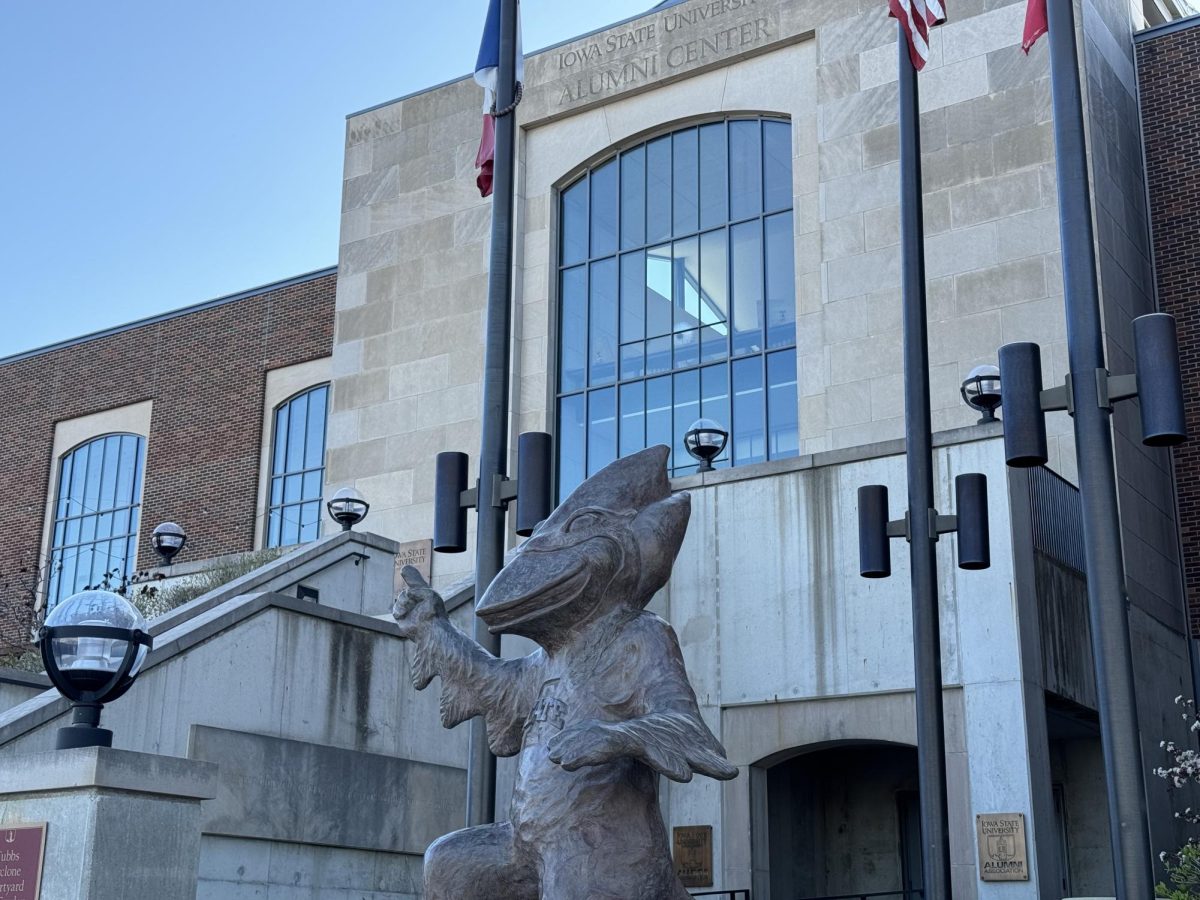With global temperatures on a steady rise for over a decade, meet the students and Ames community members organizing to combat climate change.
Lee Anne Willson, a former professor at Iowa State in physics and astronomy and a member of the Ames Climate Action Team, said Iowa has been fairly insulated from the wider impacts of climate change, but the effects can still be felt. She said one of the indirect impacts Iowa has felt can be seen by some of the smoke that has come across Iowa from Canada and the northwest.
“We do see storms, and of course here in Ames, we had two nasty hail storms this spring with lots of roof damage, and insurance companies are beginning to question the extent to which they want to be dealing with this in the future,” Willson said.
Willson added that there have recently been dangerous heat waves around the world and remarked on the record temperatures that occurred this summer.
“It’s very clear evidence that things are changing, and that they’re changing in ways that we can pretty well understand what the consequences are going to be: storms, heat, rising sea levels[or…] fires,” Willson said.
Jaiden Shahan, a senior in agricultural studies and 100% clean energy committee chair for Climate Reality Campus Corps said it is important to stay knowledgeable on climate change.
“Iowa State has contributed far more to greenhouse gas emissions and climate change than the negative impacts it receives, so to pay our share of the harm we caused, Iowa State should advance more sustainable energy and help those who are suffering the effects of what Iowa State has polluted,” Shahan said.
Shahan said he has noticed the impact of climate change over the winter.
“Anecdotally, when I grew up, we used to have huge snow drifts– my horses would climb out over the fence– and now we don’t have those huge snow drifts,” Shahan said.
Shahan added that high temperatures can cause people to become more irritable and may cause some people to suffer from heat exhaustion.
“You ask farmers, they say the seasons are getting drier, the growing season starts earlier, there’s more rain in the spring, but less rain in the summer, so there’s more flooding during planting as more droughts during the growing season,” Shahan said.
Caden Klopfenstein, a freshman in computer engineering and a College of Engineering senator, said he is concerned about climate change due to the danger of decreased biodiversity.
“When we go on […] high periods of drought, I think that affects what people can eat in the areas that already have food deserts,” Klopfenstein said. “We’re limiting the amount of food we can have, so I think it concerns me in that way because people need to eat and the ecology of the area needs to flourish as well.”
Klopfenstein said students may feel the impacts of climate change as temperatures rise.
“We already are seeing the impacts of [climate change] in our community here as temperatures continue to rise year over year and we don’t have AC in our residence halls, and based on most projections, the temperatures will continue to rise and we’ll have heat issues like that in the summertime,” Klopfenstein said.
Shahan said students who want to get involved in climate efforts on campus should visit Climate Reality Campus Corps’ student organization page and join the club formally, as well as their Discord server.
“That’s our club’s main social media app that will communicate most of our information and actions through,” Shahan said. “We have club meetings every Wednesday at 7 p.m. in Pearson 2157.”
Community members looking to get involved with the Ames Climate Action Team can visit their website.


